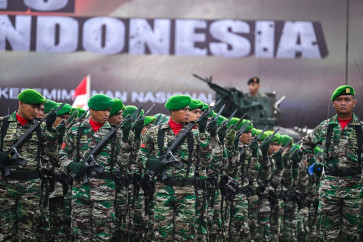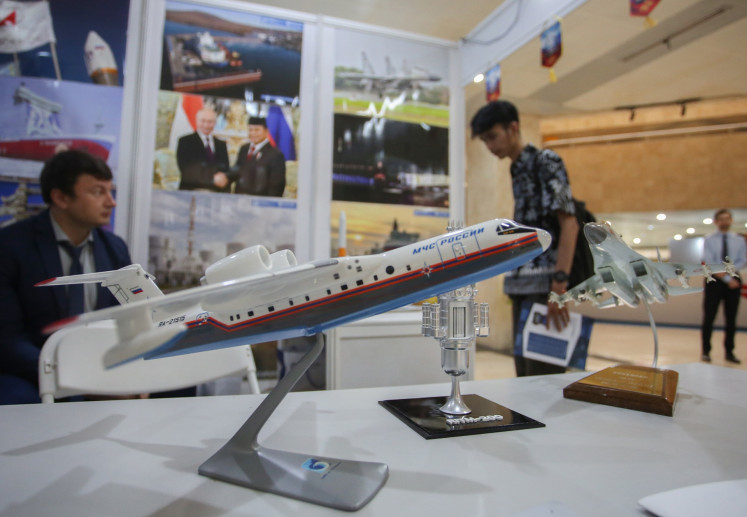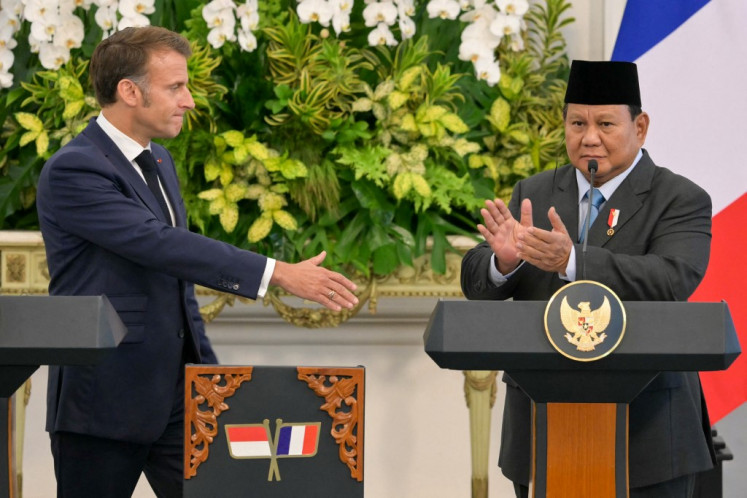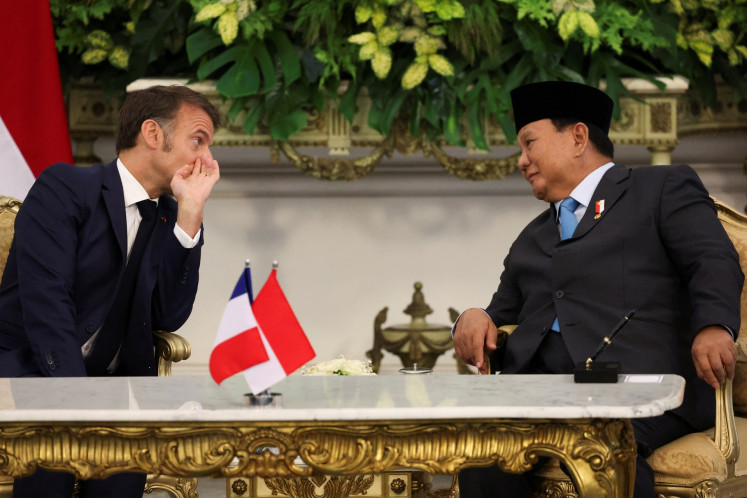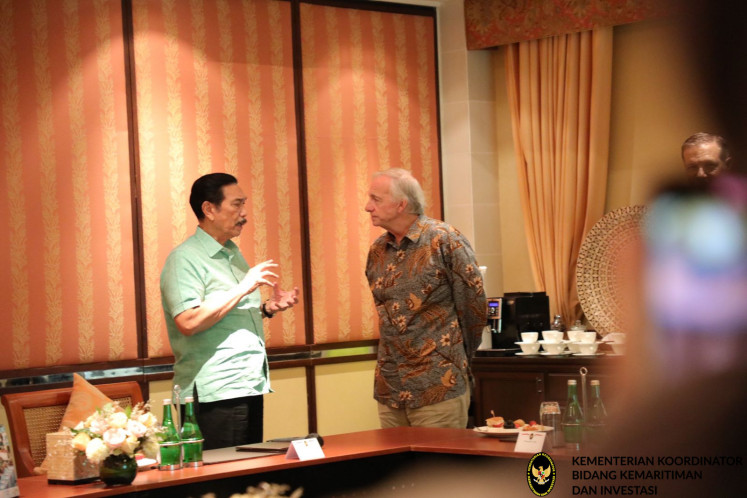Deepening Sino-Indonesia ties
Relations with China cannot be pinned solely on strong economic cooperation as some issues remain, including the skirmishes in the South China Sea, and the flooding of Chinese goods into our markets.
Change text size
Gift Premium Articles
to Anyone
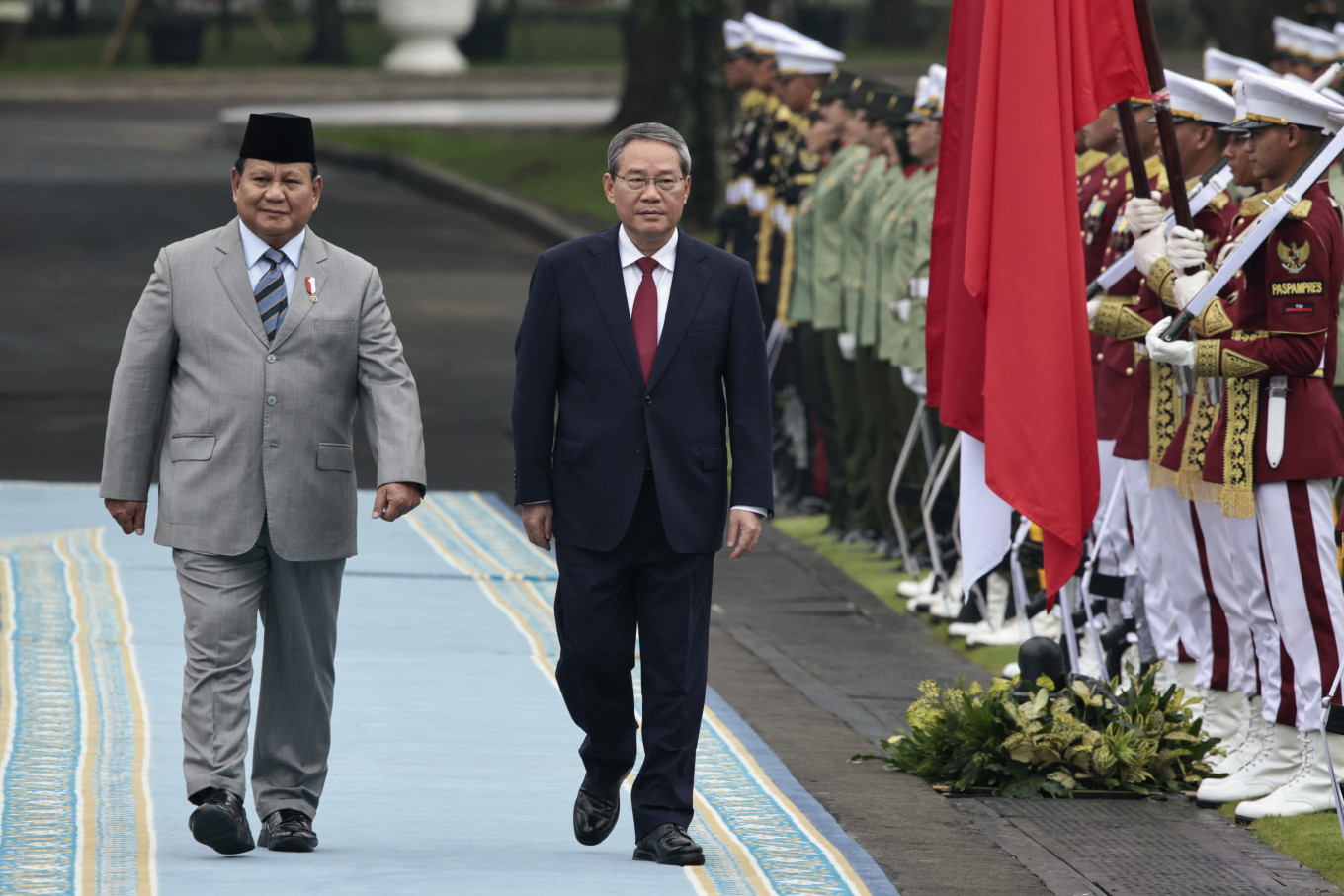 President Prabowo Subianto and Chinese Premier Li Qiang inspect a guard of honor during a welcoming ceremony at the State Palace in Jakarta on May 25, 2025. (AFP/ Yasuyoshi Chiba)
President Prabowo Subianto and Chinese Premier Li Qiang inspect a guard of honor during a welcoming ceremony at the State Palace in Jakarta on May 25, 2025. (AFP/ Yasuyoshi Chiba)
G
iven the current geopolitical environment, you would think that economic relations between Indonesia and China could not get any closer without shaking the current perception that Jakarta is already leaning closer to Beijing in the latter’s rivalry with the United States. Indonesia may profess its commitment to remaining non-aligned, but recent changes in the global political and economic landscapes dictate that it shift even further toward China.
The visit by China’s Prime Minister Li Qiang to Indonesia this weekend came when the US under President Donald Trump is launching tariff wars with almost every country in the world, including China and Indonesia.
One way to respond is for these countries to strengthen economic cooperation and reduce dependence on trade with the US. It is not that difficult for China, the world’s second-largest economy, and Indonesia, the largest in Southeast Asia, to find common ground.
Their economic relations are already close, some say too close for comfort, that Indonesia has become too dependent on China for trading, investment and financial assistance.
Li came with a big business delegation eager to explore and sign deals with their Indonesian counterparts. With host President Prabowo Subianto, he attended the Indonesia-China Business Reception, and oversaw a series of signings, including implementing the investment deals that Prabowo signed when he visited Beijing in November, worth more than US$10 billion. Also significant is the agreement between their chambers of commerce, bringing closer business-to-business relations, whether privately owned or state-run.
This year, Indonesia and China marked the 75th anniversary of diplomatic relations. Now is a good time to put substance to the strategic comprehensive partnership agreement they signed in 2013. Li’s visit is a chance for both countries to take stock of their relationship and see where they are heading in the increasingly uncertain geopolitical landscape.
A word of caution. The deepening of ties should not lead Indonesia to become too reliant on China. We may become less dependent on the US, but the government should be working to foster deeper economic ties with other countries in the region, notably Japan, South Korea, Australia, India and our Southeast Asian neighbors.
It is worth reminding the government that relations with China cannot be pinned solely on strong economic cooperation. In other areas, some issues remain, including the skirmishes in the South China Sea, the presence of Chinese workers and the flooding of Chinese goods into our markets. There is the lingering suspicion of China’s intentions, prevalent among politicians and the military, based on allegations of the Chinese Communist Party meddling in Indonesian politics in the 1960s, which led to relations being frozen for 25 years until 1990.
There is no denying, however, that closer economic cooperation is helping to build confidence between the two nations. We look forward to the time when China’s President Xi Jinping comes to Jakarta to reciprocate Prabowo’s November visit to Beijing.
This would put a seal on the importance of our relations.
Your Opinion Matters
Share your experiences, suggestions, and any issues you've encountered on The Jakarta Post. We're here to listen.
Thank you
Thank you for sharing your thoughts. We appreciate your feedback.



